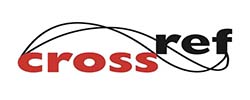Author: Mohamed Naceur Khelil, Seloua Rejeb, Jean Pierre Destain, Dimitri Xanthoulis
Keyword: Treated wastewater, Fertilizer, Nitrate leaching, Dry matter.
Abstract: Treated wastewater has significantly improved DM yield compared to ground water. The form of nitrogen provided by the water was determinant in drawing yields. Irrigation with ground water (where nitrogen is as nitrate) induces a faster migration of nitrogen at depth. In contrast, using treated wastewater (where nitrogen is as ammonium), resulting in a relative distribution of the remaining nitric smaller in the lower profile and therefore higher in the surface, especially after the second year (2010). In addition, the relative distribution of nitrates in the soil surface is even more important in the presence of organic manure. All happens as if a certain amount of ammonium provided by treated wastewater is retained in the organic compounds of manure. Yields were significantly lower in irrigation with treated wastewater in the second year and especially when fertilization was given in additional. If the soil can be used for storage of the nitrogen supplied by the treated wastewater during the first year of irrigation (24 kg N-NO3/ha before irrigation to 115 kg N-NO3/ha after irrigation), to the second year the capacity drops (to 64 N-NO3/ha) and a significant increase in nitrate leaching occurs. Therefore, unlike the contribution of manure that seems enrich the topsoil nitrate nitrogen, at least during the first campaign, mineral fertilization unreasoning causes faster migration of nitrogen at depth.
| Total View: 2251 | Downloads: 724 | Page No: 0819-0830 |
|
Cite this Article:
APA | ACM | Chicago | Harvard | IEEE | MLA | Vancouver | Bibtex























